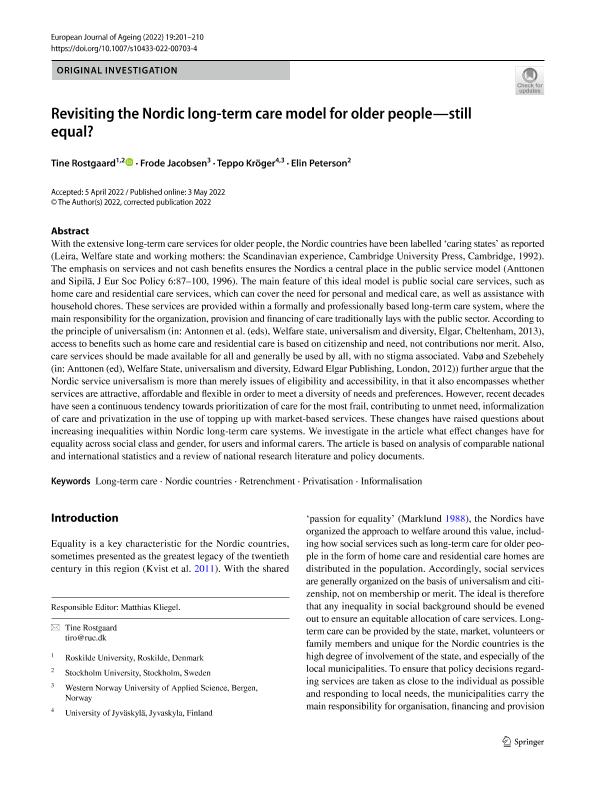Registros relacionados: En: European Journal of Ageing : social, behavioural and health perspectives. - Cham, Switzerland [etc.] : Springer International Publishing AG, 2021-. - 06/06/2022 Volumen 19 Número 2 - 2022 , p. 201-210Materia / lugar / evento: Personas mayores Atención a la tercera edad Calidad de vida Países Escandinavos Otras clasificaciones: 931.2
Revisiting the Nordic long-term care model for older people-still equal?
Registros relacionados: En: European Journal of Ageing : social, behavioural and health perspectives. - Cham, Switzerland [etc.] : Springer International Publishing AG, 2021-. - 06/06/2022 Volumen 19 Número 2 - 2022 , p. 201-210Materia / lugar / evento: Personas mayores Atención a la tercera edad Calidad de vida Países Escandinavos Otras clasificaciones: 931.2


